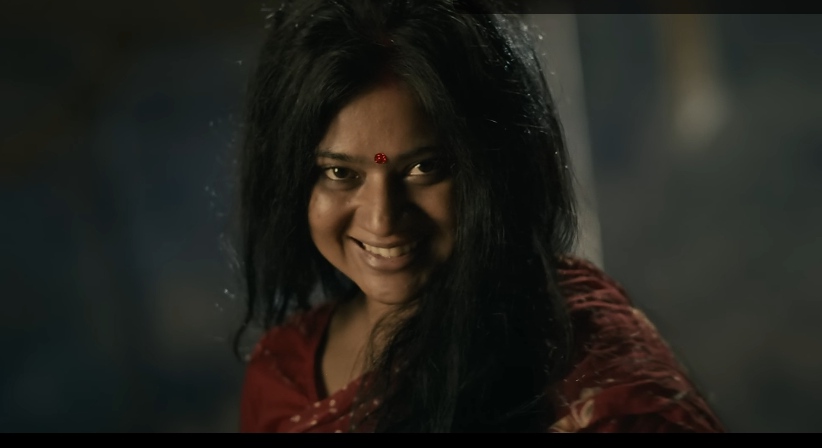Share the post "Boksi Ko Ghar Review: Exploring Depths of Nepali Cinema with Thrills and Thought-Provoking Entertainment"
“Within the whispers of time lies the untold stories of resilience and oppression.”
With the dawn of a new cinematic era, Keki Adhikari’s much-anticipated film, “Boksi Ko Ghar,” “Boksi Ko Ghar,” audiences are transported to the mystical landscapes of rural Nepal, where echoes of tradition and tales of societal constraints intertwine. Directed by Sulakshyan Bharati, this cinematic masterpiece breathes life into the forgotten whispers of Nepal’s past, shedding light on the enduring legacy of oppression and resilience. Fresh from its grand premiere yesterday, ‘Boksi Ko Ghar’ is set to be released nationwide from tomorrow (Baisakh 14).
Transporting viewers to the landscapes of rural Nepal circa the 50’s decade, “Boksi Ko Ghar” embarks on a mesmerizing journey into the heart of darkness, where the shadows of tradition and superstition converge. At its core, the film revolves around the enigmatic figure of Boksi, a woman accused of wielding the powers of black magic portrayed by Keki Adhikari. As a tenacious journalist, Swechha Raut, ventures into the heart of a remote village in search of truth, she finds herself in a web of intrigue and deception, unraveling the haunting tale of Boksi’s tragic descent into infamy. Through a captivating blend of past and present, the film unveils the harrowing journey of a woman condemned by society, echoing the silenced voices of countless others.

“Boksi Ko Ghar” masterfully captures the essence of rural Nepal, transporting audiences to a bygone era with its breathtaking cinematography and authentic set designs. Every frame is meticulously crafted to evoke a sense of nostalgia and immersion, drawing viewers into the heart of the narrative. with audiences on a deeply emotional level.
Beyond its captivating storyline, “Boksi Ko Ghar” serves as a powerful commentary on the enduring legacy of patriarchy and societal oppression. By shining a spotlight on the plight of marginalized women and the injustices they face, the film ignites important conversations about gender equality and social change. At its core, the film serves as a poignant meditation on the intricacies of the mind, probing the depths of trauma, identity, and existential angst with unparalleled sensitivity and nuance.
While “Boksi Ko Ghar” delivers thrilling moments of suspense, some viewers may find the pacing inconsistent. Despite standout performances from lead actress Keki Adhikari and a few key supporting players, suffers from underdeveloped characters in secondary roles.
However, whether it’s a sudden revelation that sends shivers down the spine or a pulse-pounding chase through the moonlit streets of the village, the film expertly keeps viewers guessing at every turn, never letting them rest easy until the final credits roll.










Comments